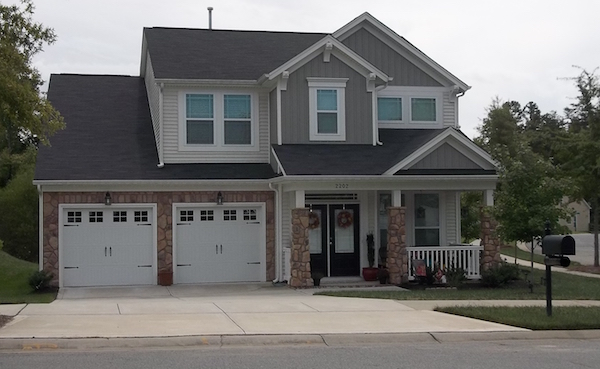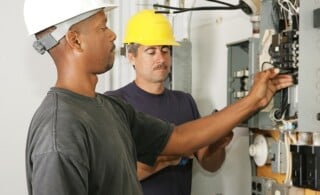
It’s a bold title, and it’s meant to get your attention. There are a lot of fly by night contractors around. I’m sure you’ve heard the stories. But at the same time, there are also some very good contractors in business with an ongoing commitment to quality construction and good customer service. You just have to know how to determine the difference.
Virtually all homeowners approach the contractor selection process with anxiety and even dread. Some feel prospective contractors won’t be completely honest about cost and fear being tempted by appealing promises or low-ball estimates. The abundance and variety of construction horror stories leads others to believe there are only unqualified contractors out there ready to take advantage of the unsuspecting. Then others despair because they’ve heard of a homeowner who did shop carefully, hired a “very reputable” contractor and still had a bad experience. Its little wonder most home owners feel unsure where to begin and what questions to ask.
Below is a summary of the simple steps you’ll need to take to find the right contractor. As you look over this list you may think “this looks too easy and obvious to be of any use.” On one level you are correct. When you think about it, the plan is obvious and very straightforward. But as you read on, you’ll see that I equip you with two powerful tools that make you master of the process.
PART ONE: THE INTRODUCTORY CALL, YOUR FIRST CONTACT WITH PROSPECTIVE CONTRACTORS
Most people don’t like interviewing contractors because they don’t have confidence in their ability to discern if a contractor is honest. If you’ve done your homework with thoroughness and patience, you’ve spared yourself that anxiety because you already know your candidates are qualified, honest and reliable.
When you begin contractor interviews, your task will be to locate a contractor you can work with, one whose interest in your project impresses you, one who listens carefully to what you say. The goal of this quest is to find compatibility with a contractor whom you’ll be able to work with successfully for the time necessary to complete your project. Once you’re ready to begin the interviewing process, call the contractors in the order you’ve rated them. Be prepared to describe your project and state when you’d like to begin construction.
When you call the contractors on your list, have three to five preliminary questions ready to ask each. Here are some suggestions:
- Have you completed a job similar to this before?
- Do you have a list of references that I can contact?
- When will you be able to start the job?
- When could we meet in person to further discuss this? (only if you’re encouraged by the answers they give).
There is no set script for these calls. In fact, in the course of some conversations a contractor may offer everything contained above and more. Be aware of how easily the conversation progresses. When you hang up, make a few notes on the conversations. What were your impressions of the contractor? Did he or she listen well? Did he or she answer your questions thoroughly?
PART TWO: YOUR FIRST MEETING WITH PRESELECTED CONTRACTORS
In this new relationship, common courtesy is a must and good contractors understand this. If a contractor fails to show up for your first meeting and does not call to reschedule, cross him off your list.
In regards to this first appointment, let me state definitively that all principal parties should be present at this initial and all subsequent meeting. This includes the contractor and BOTH spouses, if applicable. This is absolutely essential for all parties to participate fully in the interview process and for everyone to operate with equal information.
Listed here are questions you should ask during your first meeting.
CONTRACTOR QUESTIONS
BUSINESS IDENTITY:
- How long has the firm been in business?
- What is their permanent business address?
- Is the prospect licensed to work in your area?
- What year was the business initially licensed?
BUSINESS PRACTICES
- How does the company ensure warranty service complaints are effectively handled?
- In case of any accident, is the company insured against workman’s compensation claims, property damage or personal liability?
- How does the company maintain good customer relationships throughout the construction and warranty period? (applicable in longer projects)
- What will the payment or draw schedule look like (applicable in longer projects)
BUILDING PRACTICES (applicable in longer projects)
- Who will be assigned as the project or site supervisor?
- Who will be your contact if that person is not available?
- Will there be a supervisor on the site full time?
- Will they be providing a written construction schedule?
- What’s the company’s routine regarding regular meetings with the homeowners during construction?
- Who will attend those meetings? Will the builder personally attend every meeting?
- Can I expect to see workers at the site every day?
- Does the builder plan to stay personally involved in the project at all points?
- May I have the names and numbers of five homeowners you’ve completed projects for?
- May I visit a site where work is in progress?
Note: A visit to a site in progress can reveal much about a company’s ability to manage a large project. Notice how organized it looks. Is it messy and chaotic or does it seem well-organized with workers moving like they know what they are doing?
This list is not intended to be exhaustive. In fact, it should help you generate other, more personal questions.
I cannot encourage you strongly enough to ask any questions you may have. Nothing is off limits concerning your project or the company you’re interviewing. Asking good, detailed questions is the heart of your due diligence. If you don’t question thoroughly, you’re giving up your responsibility in this process and possibly compromising the quality of your project.
HOW TO NARROW THE FIELD: TRUST BUT VERIFY
You should suggest second meetings with your preferred candidates to discuss your project in greater detail. Second meetings provide an important chance to ask those questions you overlooked in your first meeting, plus the key questions that will enable you to identify the builder you’ll move forward with. Trust the representations your favorites make, but verify them. Your due diligence may protect you from confusing an itinerant contractor with an established professional.
Below I outline steps to objectively verify your candidates’ business representations. Among them are several items you should address during your second meetings if you didn’t during your first.
- Number one, they should be licensed, as required. Ask for a copy of their business license.
- Second, obtain proof of insurance. The contractor should supply you with a Certificate of Insurance indicating it has a sufficient general liability and workmen’s compensation insurance. Additionally, the contractor should have coverage against theft of any materials delivered to the job site but not yet installed.
- Number three; confirm the contractor’s business address. He may have an office, but it’s also common for contractors to work out of their homes. Ask for a visit just to confirm your candidate isn’t working out of the back of a truck or a post office box. What you’re trying to determine here is your candidate’s permanence.
- Number four; for bigger projects, you can call the Better Business Bureau and your local consumer affairs office to check the company for consumer complaints. Better Business Bureaus (BBBs) are non-profit organizations supported primarily by local businesses, which encourage honest advertising and selling practices and keep records of consumer complaints. Check your candidates’ records, but remember that just as there are unreliable contractors, there are also unreasonable homeowners. Even a good contractor can receive a complaint. If a favorite has a complaint, ask for information about its resolution. If he addressed it quickly and to the client’s satisfaction, that’s a sign of professionalism.
 Preventing Home Improvement Fraud
Preventing Home Improvement Fraud  Tips for Finding & Hiring an Electrician
Tips for Finding & Hiring an Electrician  What Should Be Included in a Contractor Agreement Form?
What Should Be Included in a Contractor Agreement Form?  How Much Do Garden and Yard Work Services Cost?
How Much Do Garden and Yard Work Services Cost?  What to Know When Hiring a Fence Installer
What to Know When Hiring a Fence Installer 

Are You Familiar With This Topic? Share Your Experience.